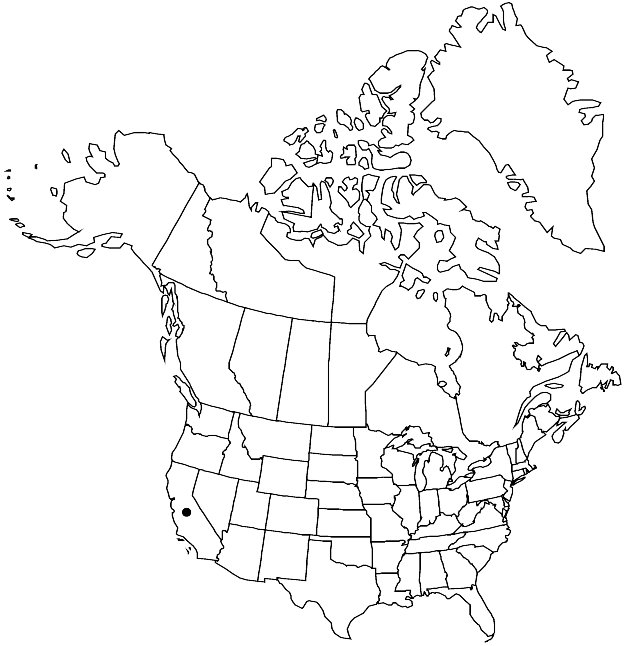Streptanthus morrisonii
Madroño 11: 225, figs. 2–4. 1952.
Biennials; (glaucous), usually glabrous throughout (sometimes sepals pubescent). Stems (simple from base), often paniculately branched distally, (2.5–) 6.5–12 (–15) dm. Basal leaves rosulate; petiolate; blade (fleshy, purplish abaxially, gray-green adaxially, often mottled distally), oblanceolate to broadly obovate or orbicular, 1–7 cm, margins dentate or repand. Cauline leaves: blade broadly ovate to narrowly lanceolate, 0.7–5 cm × 2–40 mm, (much smaller distally), base auriculate to amplexicaul, margins entire. Racemes ebracteate, (lax, secund). Fruiting pedicels divaricate to ascending, (straight), 1–3 (–4) mm. Flowers: calyx suburceolate; sepals pale-yellow to violet, (ovatelanceolate), 5–8 mm, keeled, (apex usually recurved, glabrous or sparsely to densely hirsute, trichomes to 1.3 mm); petals (barely exserted), creamy white (with brownish purple veins), 7–10 mm, blade 2–3 × 1–2 mm, margins not crisped (channeled), claw 5–7 mm, about as wide as blade; stamens in 3 unequal pairs; filaments: abaxial pair (connate ca. 1/2 their length), 4–6 mm, lateral pair 2–4 mm, adaxial pair (connate to apex), 7–9 mm; anthers: abaxial and lateral pairs fertile, 2–3 mm, adaxial pair sterile, 0.6–1 mm; gynophore 0.1–1 mm. Fruits suberect to divaricate, strongly torulose, usually straight, sometimes slightly curved, flattened, 2.5–8 cm × 1.5–2 mm; valves each with prominent midvein; replum constricted between seeds; ovules 24–38 per ovary; style 0.1–0.2 mm; stigma entire. Seeds oblong, 1.5–2 × 0.9–1.3mm; wing (0–) 0.05–0.1 mm wide, distal. 2n = 28.
Phenology: Flowering May–Sep.
Habitat: Ridges, serpentine barrens, openings in serpentine chaparral, cypress-knob cone pine woodlands
Elevation: 150-1100 m
Discussion
Of conservation concern.
Streptanthus morrisonii is known from Colusa, Lake, Monterey, Napa, and Sonoma counties.
R. W. Dolan and L. F. LaPré (1989) studied Streptanthus morrisonii in the North Coast Ranges and found fixed local population differentiation in sepal pubescence and color. Subsequent discovery of plants 200 km southward in the Santa Lucia Mountains (Monterey County) that span all of the characters alleged to distinguish the subspecies makes recognition of infraspecific taxa pointless.
Selected References
None.
Lower Taxa
"elongated" is not a number."thick" is not a number."dm" is not declared as a valid unit of measurement for this property."dm" is not declared as a valid unit of measurement for this property.
